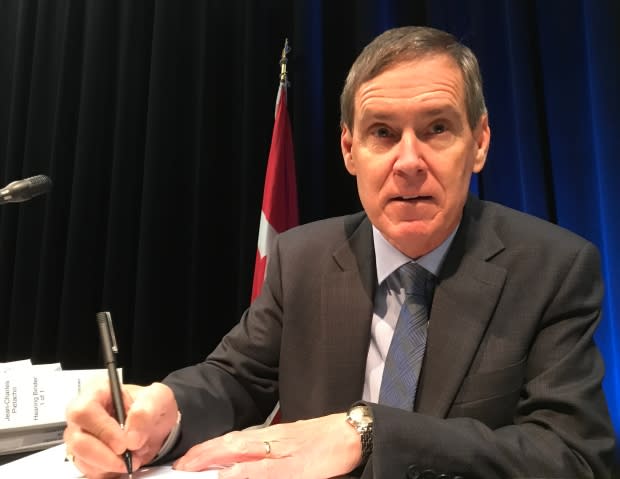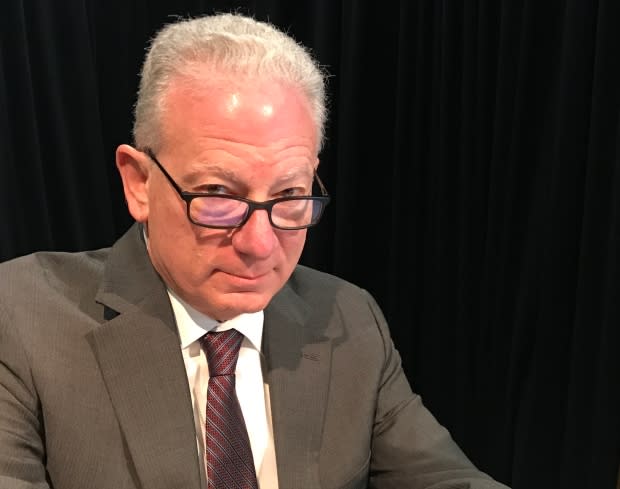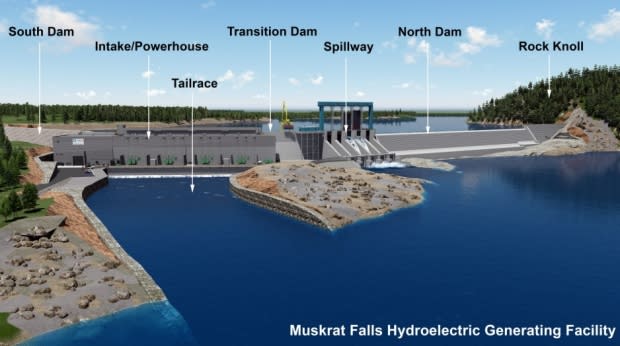Knives out for Nalcor as Muskrat Falls inquiry heats up in chilly Labrador
The knives were out for Nalcor at the Muskrat Falls inquiry Wednesday, with the findings of a forensic audit into the construction phase of the controversial project fuelling a barrage of criticism against Newfoundland and Labrador's energy corporation.
Everything from Nalcor's selection of Astaldi to build the powerhouse at Muskrat Falls, to its cost estimates and its apparent habit of keeping its bosses at the provincial government in the dark, came under scrutiny. And everyone from Commissioner Richard LeBlanc and various lawyers to the auditor himself chimed in as public hearings continued in Happy Valley-Goose Bay.
The onslaught overshadowed Nalcor's attempts to cast the blame for the billions in overruns and schedule delays on contractors like Astaldi, whose troubled involvement with the project has become a lightning rod in this second phase of the inquiry.
The tension escalated as lawyers began cross-examining Grant Thornton auditor Scott Shaffer, who released his long-awaited report Monday.
Politicians, bureaucrats in the dark
One of the most contentious items in the report is a revelation that early bids for various work packages came in $600 million higher than Nalcor's original cost estimates, on a project estimated at a capital cost of $6.2 billion at sanctioning.
This immediately chewed up Nalcor's contingency allowance of $368 million.

Despite this troubled start, Nalcor did not pause the project or recalculate its estimates, and instead signed a federal loan guarantee in late 2013 that locked Nalcor and the province into completing the project, regardless of overruns.
In the years since, construction costs have soared to at least $10.1 billion, though that figure grows to nearly $13 billion when financing and other costs are included. And the province is now scrambling to try to avert a doubling of electricity rates within the next two years.
There's growing evidence that senior politicians and bureaucrats in the provincial government were not informed about these early warning signs.

When repeatedly asked by lawyers for various government officials involved with the project in 2013 if he found any evidence that Nalcor shared this information, Shaffer replied, "None that I can recall."
There's also evidence that Nalcor's project team set a new construction cost forecast at $7 billion in July 2013.
"In the course of your audit did you find any evidence the shareholder was made aware of that fact?" asked Justin Hewitt, lawyer for former premier Kathy Dunderdale.
"No," said Shaffer.
Nalcor becoming increasingly isolated
It's the latest sign that Nalcor is becoming increasingly isolated as evidence continues to trickle out at the inquiry, and that observation was only magnified during an exchange between LeBlanc and Harold Smith, the lawyer for former Nalcor CEO and Muskrat architect Ed Martin.
During his questioning of Shaffer, Smith made the point that despite the cost escalations in 2013, Muskrat remained the least-cost option for the province's future electricity needs based on an analysis that compared it with maintaining the island's isolated power grid.

Smith also said another $300 million in savings from the loan guarantee had been identified, which offset much of the overruns.
When you find out that your $6.2-billion option isn't going to work, you go back to the drawing board and figure out how you're going to meet your need for power. - Richard LeBlanc
"In any project of this size … there's an expectation that $6.2 [billion] is not hard and fast and set in stone. That there will be challenges," said Smith.
LeBlanc cut Smith off, saying Nalcor had another option at the time.
"When you find out that your $6.2-billion option isn't going to work, you go back to the drawing board and figure out how you're going to meet your need for power," LeBlanc said.
Shaffer also weighed in, saying it would have been prudent for Nalcor to re-evaluate its situation in 2013.
"As a prudent businessperson, when you realize that your estimate is basically wrong, maybe you have to put the brakes and go back and sit and think about this and maybe rerun the numbers," Shaffer said.

"As of four months after sanctioning, that tactical contingency is gone. And now you realize that the remaining balance of the budget has no contingency on it, the $4.2 billion that's remaining."

Watching from the gallery, meanwhile, was the province's consumer advocate, Dennis Browne, and he's not impressed with Nalcor.
"We're in this bind because of the carelessness with which this project was instigated," he told CBC following Wednesday's testimony.
Read more from CBC Newfoundland and Labrador

